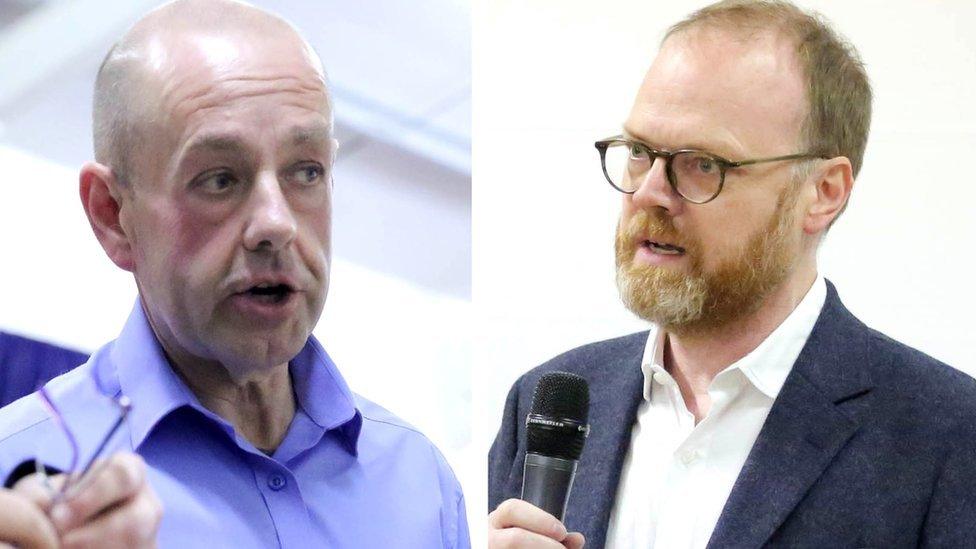Police unlawfully spied on journalists, court finds
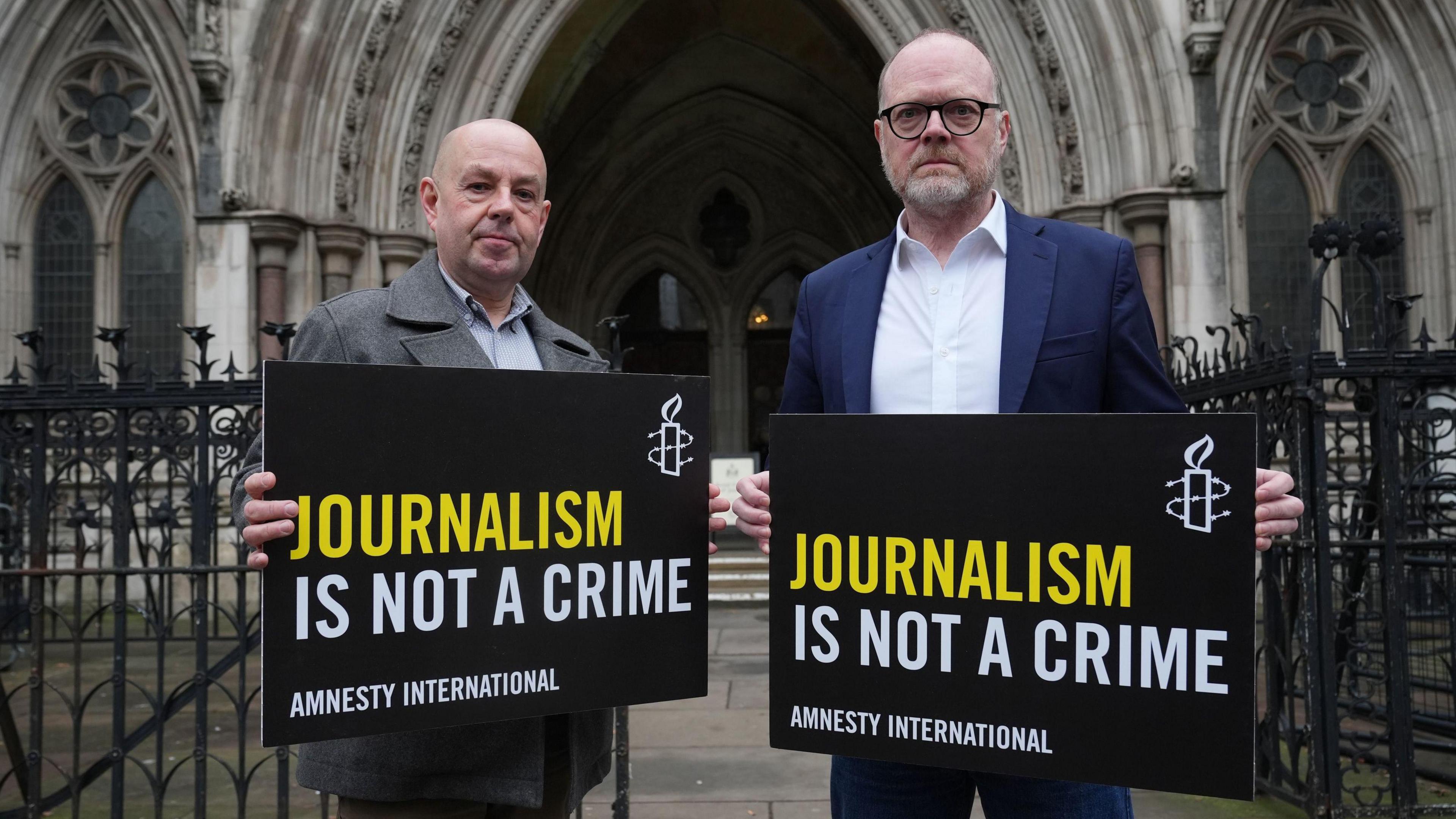
Barry McCaffrey (left) and Trevor Birney (right) outside the Royal Courts of Justice, London, on Tuesday
- Published
The Police Service of Northern Ireland (PSNI) and Metropolitan Police acted illegally by spying on two Belfast journalists' to identify their sources.
The landmark ruling was made by the Investigatory Powers Tribunal (IPT) in a case brought by Barry McCaffrey and Trevor Birney.
It found that the actions of police when mounting an undercover surveillance operation were disproportionate and undermined the domestic and international protections available for the media.
The PSNI has been ordered to pay £4,000 to each journalist, the first time the IPT has made a ruling for damages against a police force for unlawful intrusion.
A covert sting operation in 2018 targeted a civilian employee of the Northern Ireland Police Ombudsman.
They were suspected of passing secret documents to the journalists which appeared in a documentary called No Stone Unturned about the Loughinisland killings.
The film revealed how the police had colluded in protecting loyalist gunmen who murdered six Catholic men as they watched a World Cup football match in the County Down village in 1994.
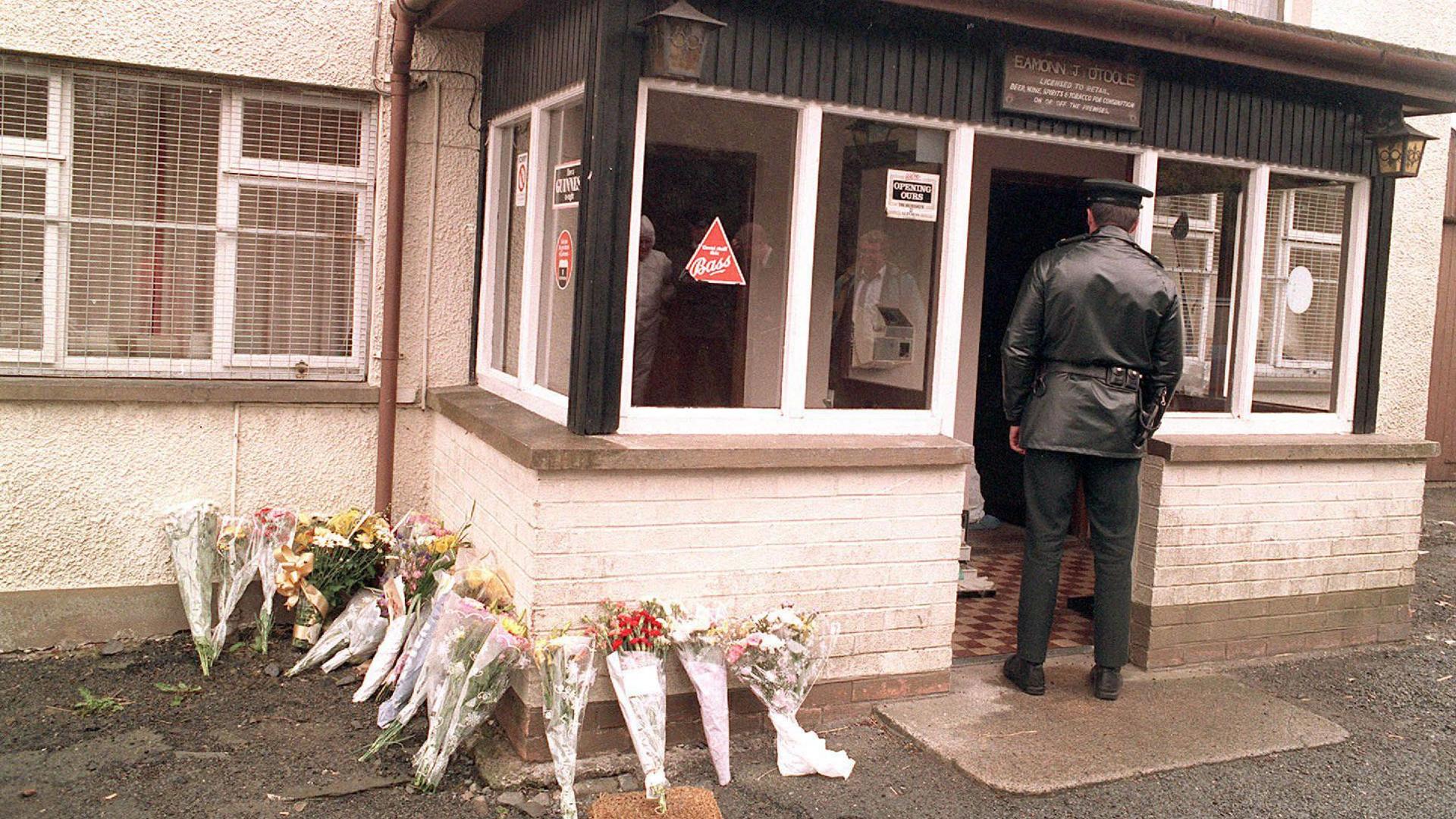
Six Catholic men were shot dead as they watched a World Cup football match in Loughinisland in1994
Barry McCaffrey and Trevor Birney were arrested with their homes and offices being raided.
They later won a court case which found that warrants used to search their homes had been "inappropriate".
The High Court judge said they had acted properly in protecting their sources in a lawful way and the PSNI later paid damages amounting to £875,000.
The journalists brought their case to the IPT at the Royal Courts of Justice in London arguing that there were repeated and unjustified attempts by the police to identify their sources.
During the tribunal hearing in October, the PSNI's lawyers denied there has been a cynical attempt to deliberately circumvent the long-established legal protections for journalists and their sources.
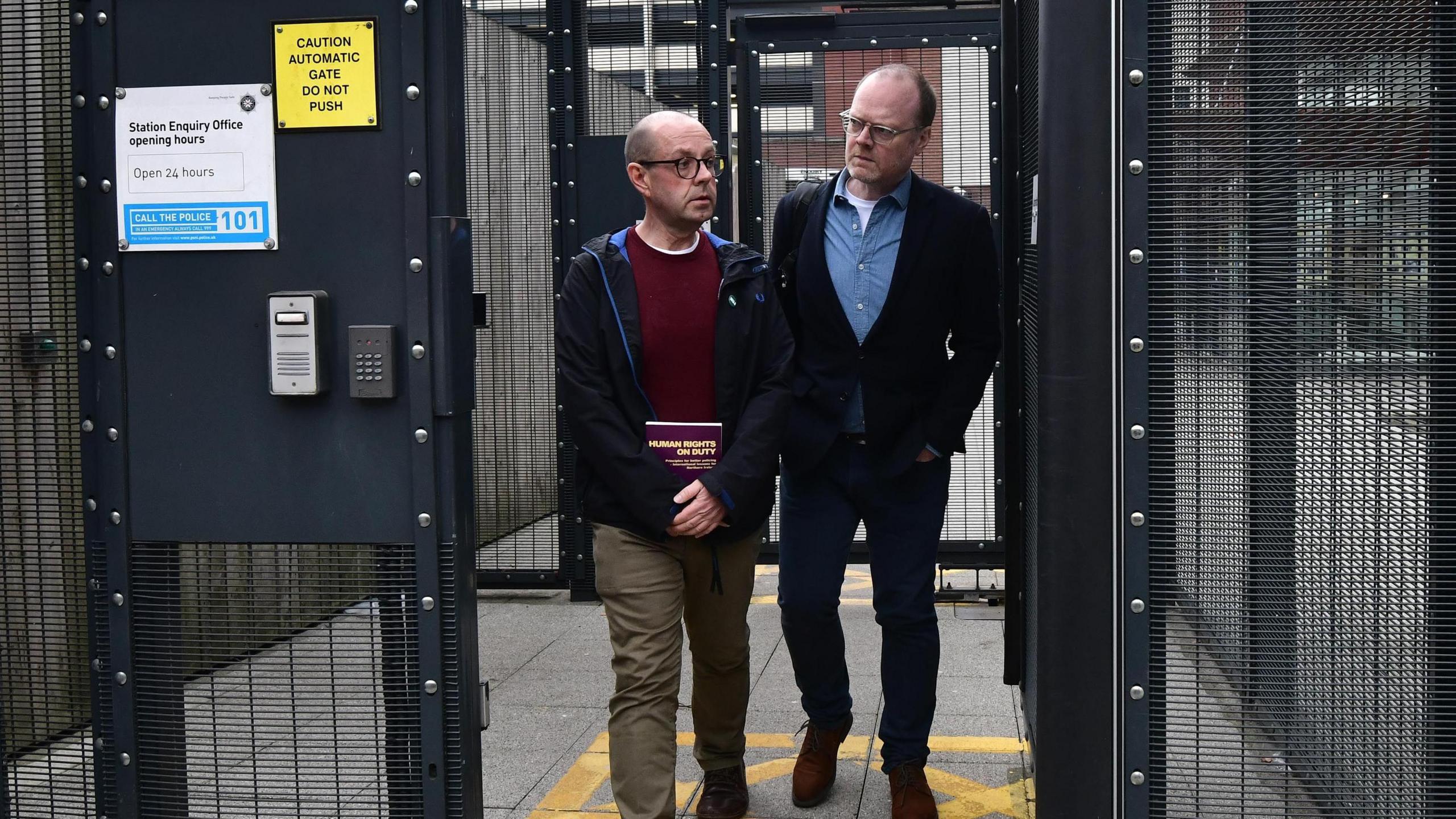
Barry McCaffrey and Trevor Birney were arrested and their homes and offices were raided
In a written judgment, the IPT rejected police claims that the surveillance operation had only been designed to target the Police Ombudsman official.
The IPT ruled that former PSNI Chief Constable Sir George Hamilton had failed to meet the necessary legal standard and neglected the need for heightened scrutiny of surveillance applications in cases involving journalists.
Further disclosures to the IPT revealed that the Metropolitan Police had accessed the phone records of Barry McCaffrey and former BBC journalist Vincent Kearney in 2012.
This data was subsequently shared with the PSNI.
The BBC and Mr Kearney are pursuing separate action through the IPT.
Police documents revealed how Barry McCaffrey was repeatedly described as a "suspect" who associated with "other criminal suspects".
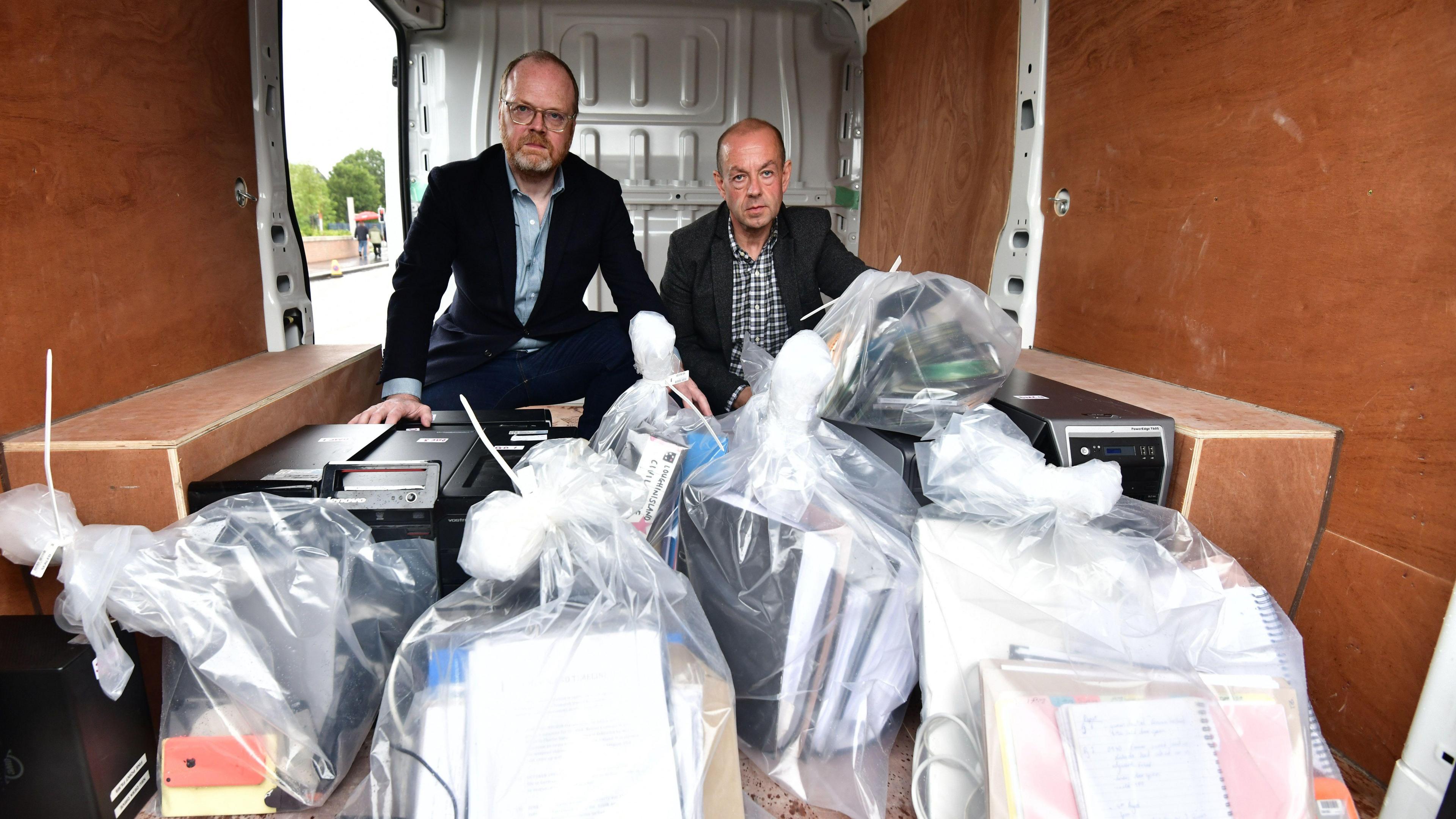
The journalists' material was seized in 2018 as part of an investigation into the suspected theft of confidential documents
Commenting on the judgement, the PSNI Chief Constable, Jon Boutcher, said he accepts that "due consideration was not given to whether there was an overriding public interest in interfering with journalistic sources before authorising surveillance".
"This was one of a number of difficult decisions on a complex and fast moving day for policing in Northern Ireland involving balancing competing interests at pace."
He added that he was "committed to ensuring" that the PSNI use powers available to them in a way that is "lawful, proportionate and accountable".
A spokesperson for the Policing Board said they will "consider the findings of the judgment" and "discuss with the chief constable at the earliest opportunity".
The board has also asked the chief constable for the McCullough Report to be provided by 31 March 2025.
The McCullough Review, headed by Angus McCullough KC, is an independent review of any use of surveillance against journalists and other specific groups by the PSNI, which was announced by the chief constable in June.
'Press freedom'
Welcoming the judgment, Trevor Birney said the ruling "underscores the crucial importance of protecting press freedom and confidential journalistic sources".
He added that he hoped it would "protect and embolden" journalists pursuing stories in the public interest.
"The judgment serves as a warning that unlawful state surveillance targeting the media cannot and should not be justified by broad and vague police claims," he said.
"The judgment raises serious concerns about police abuse of power and the law. Our case has exposed the lack of effective legal safeguards governing secret police operations.
"As a result of our case going to the Investigatory Powers Tribunal, the PSNI has already been forced to admitted that they spied on 300 journalists and 500 lawyers in Northern Ireland."
Mr Birney added that only a public inquiry could properly investigate the full extent of the police spying operations.
'Exposed critical failures'
Barry McCaffrey said the IPT judgment reinforced the urgent need for increased legal safeguards to protect journalists and their sources.
He said the ruling "exposed critical failures in both the monitoring and oversight of surveillance operations carried out against journalists and their sources".
"Despite all of their efforts, the police were still unable to identify our sources for the film," he said.
"They wasted police time and resources going after us instead of the Loughinisland killers."
He added: "The judgment, particularly its condemnation of Sir George Hamilton's leadership, highlights the urgent need for reform.
"The police need to change, they should respect press freedom, they must abide by the rule of law and uphold the democratic principles of transparency and accountability."
'Cornerstone of democracy'
Alliance Party Policing Board member Nuala McAllister said it was a dark day for policing in Northern Ireland.
"Freedom of the press is a cornerstone of democracy and something which cannot be compromised," she said.
Séamus Dooley, assistant general secretary of the National Union of Journalists (NUJ), said: "At the heart of this case is a lack of regard for due process and a failure to recognise that journalists have a right and duty to investigate matters of public importance."
Amnesty International's Northern Ireland Director, Patrick Corrigan said: "The right of journalists to protect their sources is a cornerstone of a free society, and the PSNI saw fit to ride roughshod over every human rights safeguard designed to protect that right.
"The truth has had to be dragged kicking and screaming into the light, and today's judgment is testament to the tenacity and determination shown by Trevor Birney and Barry McCaffrey," he said
- Published11 May 2024
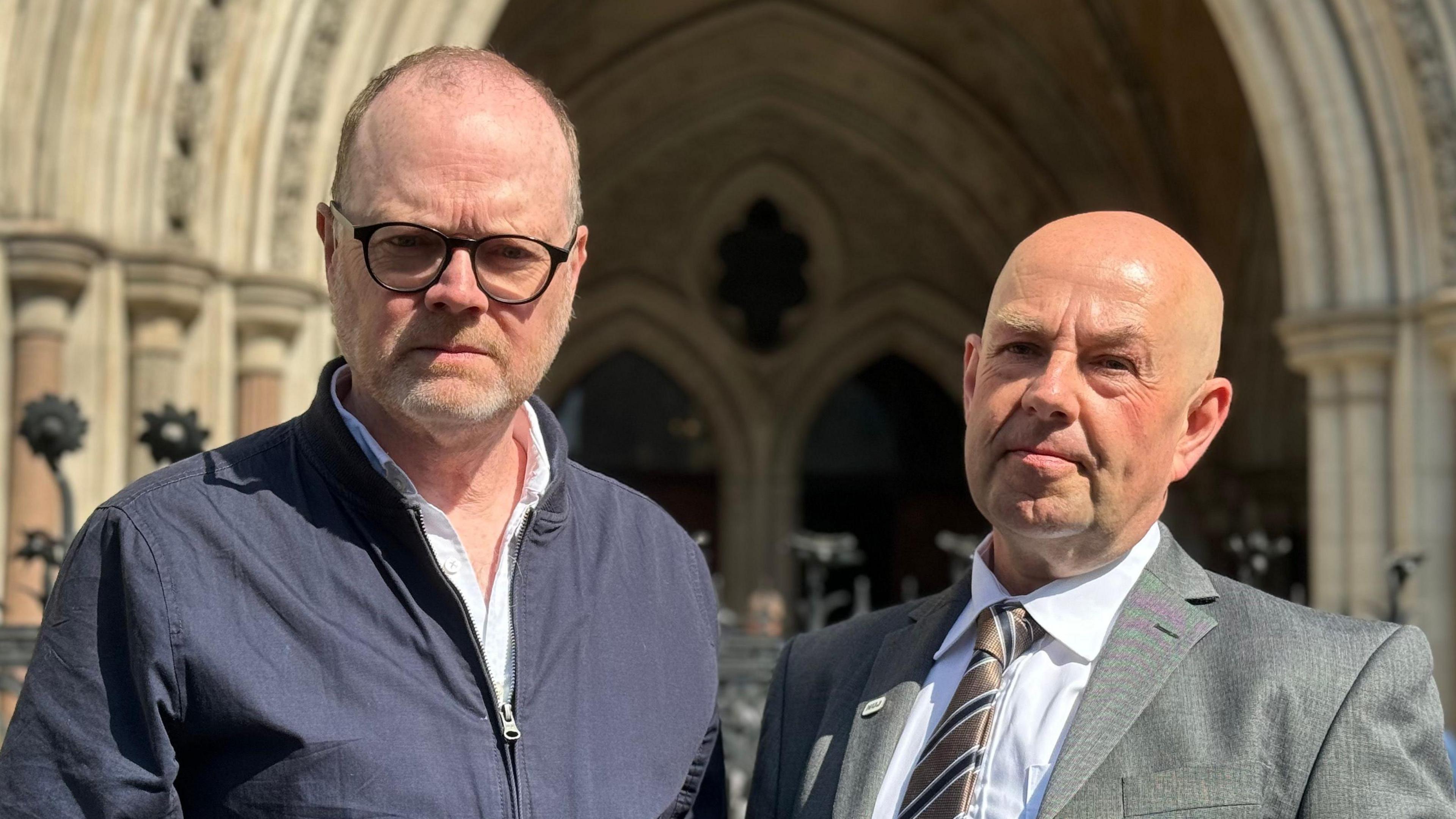
- Published1 October 2024
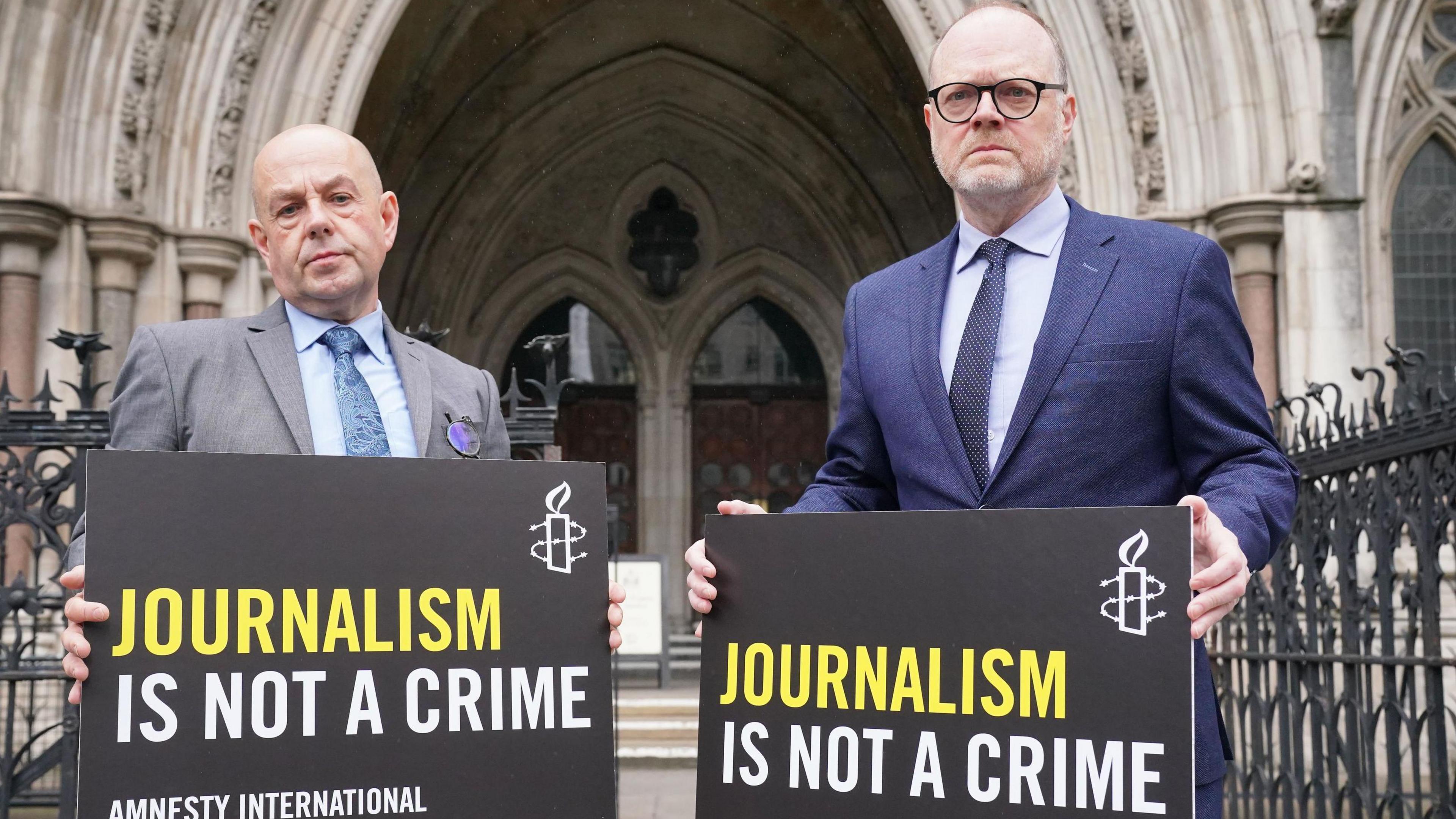
- Published3 October 2024
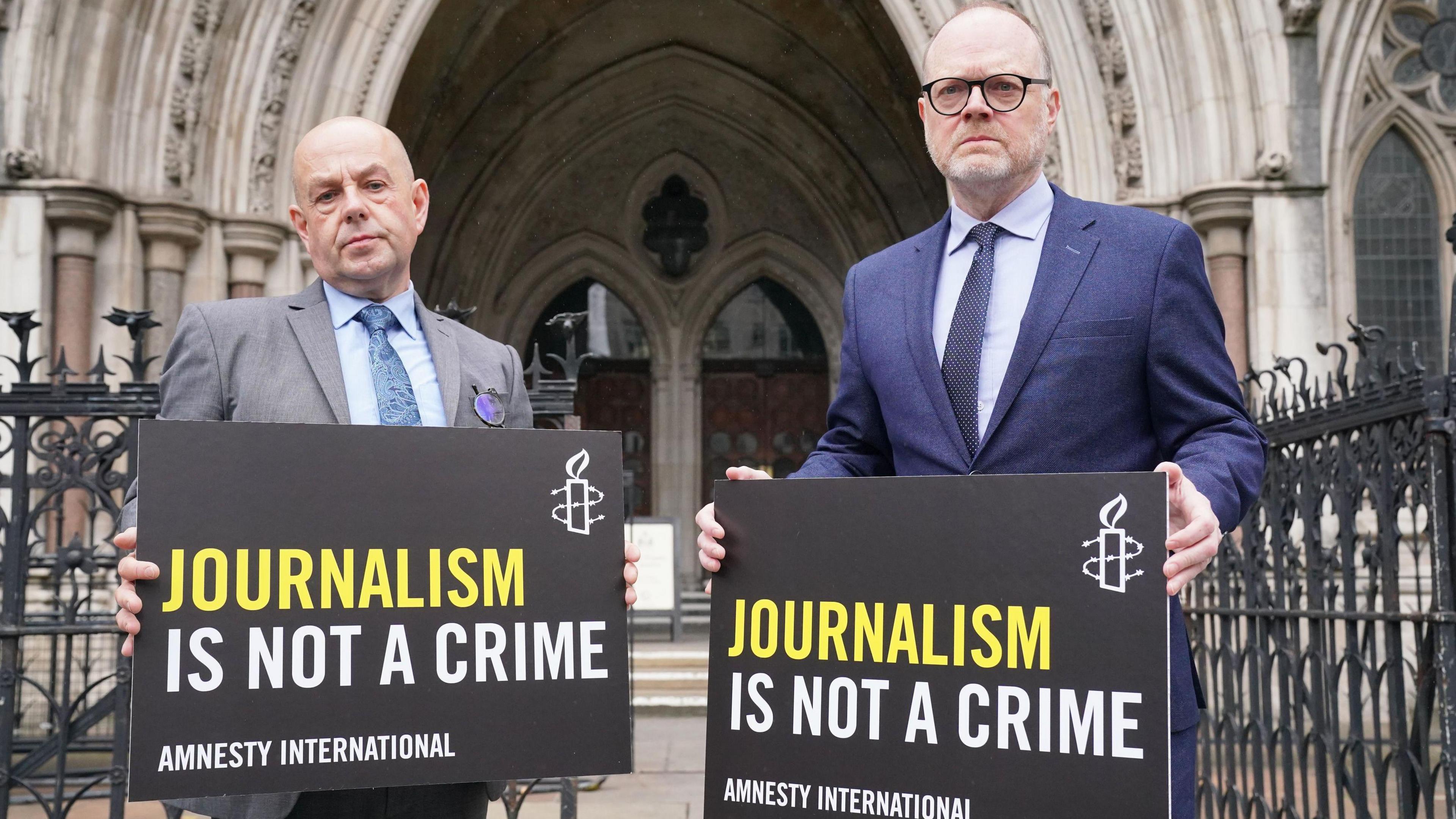
- Published27 November 2020
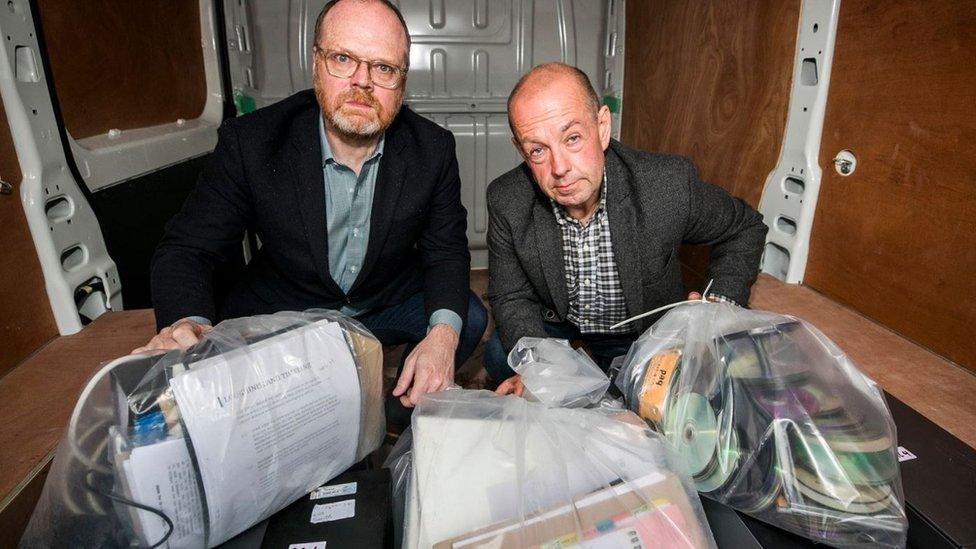
- Published28 May 2019
